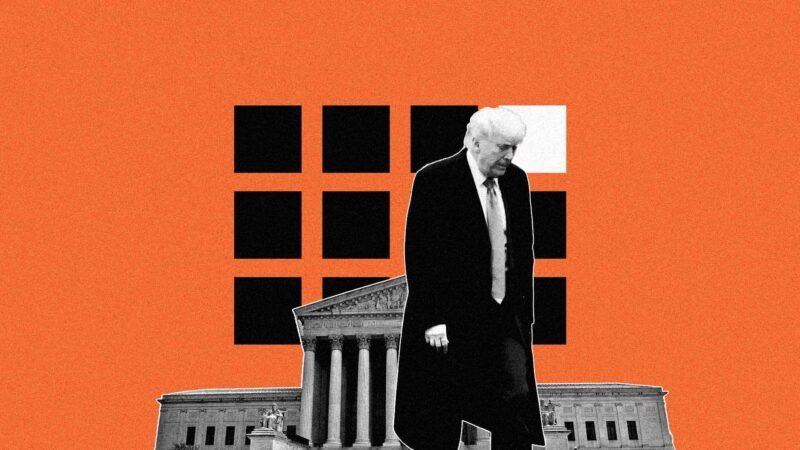Supreme Court Unanimously Orders Trump To 'Facilitate' the Return of Wrongly Deported Man
Trump lost on his most aggressive claims of executive power for the second time in a week.

For the second time in a week, all nine members of the U.S. Supreme Court have rejected a sweeping assertion of executive power made by President Donald Trump in a case arising from Trump's unilateral efforts to deport aliens from the United States.
The first rejection came on April 7, when the Supreme Court unanimously ruled that all deportees under the Alien Enemies Act must be afforded due process of law, including "notice and an opportunity to challenge their removal." That was a clear repudiation of Trump's claim that the Alien Enemies Act allowed him to summarily deport alleged members of a Venezuelan street gang without due process and judicial review. But as Justice Brett Kavanaugh observed in concurrence in Trump v. J.G.G., "all nine Members of the Court agree that judicial review is available."
The second rejection came on April 10, when a unanimous Supreme Court let stand, in part, a lower court order which directed the Trump administration to "facilitate and effectuate the return…to the United States" of Kilmar Armando Abrego Garcia, a man whom the U.S. government admitted to unlawfully deporting to a Salvadoran prison because of an "administrative error."
The Trump administration responded to the lower court's order by claiming that the attorney general's decision to remove Abrego Garcia, even when made in error, could not be subjected to judicial review. The administration further claimed that "an injunction demanding the release and return of an alien from a foreign sovereign violates Article II," which is another way of saying the lower court exceeded its proper judicial authority by trespassing on the core powers of the president.
According to the Supreme Court's unsigned order in Noem v. Abrego Garcia, however, the district court's order "properly requires the Government to 'facilitate' Abrego Garcia's release from custody in El Salvador and to ensure that his case is handled as it would have been had he not been improperly sent to El Salvador." In other words, Trump failed in his attempt to evade judicial review in this matter.
That presidential failure is excellent news for the rule of law. As Justice Sonia Sotomayor pointed out in an accompanying statement, "the Government's argument…implies that it could deport and incarcerate any person, including U.S. citizens, without legal consequence, so long as it does so before a court can intervene. That view refutes itself."
At the same time, however, the Supreme Court stopped short of telling Trump to "facilitate and effectuate" Abrego Garcia's release. Instead, the Court told the lower court to "clarify" the "intended scope of the term 'effectuate'" to ensure that "due regard" is shown "for the deference owed to the Executive Branch in the conduct of foreign affairs."
But even that partial nod in the president's direction was immediately followed by this firm command by the Court: "For its part, the Government should be prepared to share what it can concerning the steps it has taken and the prospect of further steps." So, according to a 9–0 Supreme Court, the Trump administration must not only "facilitate" Abrego Garcia's release, but it must also inform the courts about the "steps" it is taking. Again, that is a loss for Trump's lawless desire to evade judicial review.
To be clear, both of these cases are far from over. There are still major questions to be answered about whether or not Trump's use of the Alien Enemies Act was lawful in the first place. It also remains to be seen whether or not Trump will obey the Supreme Court's unambiguous order to facilitate the release of an unlawfully deported and imprisoned man.
At the rate such litigation is already playing out, we may get those answers sooner rather than later.


Show Comments (129)